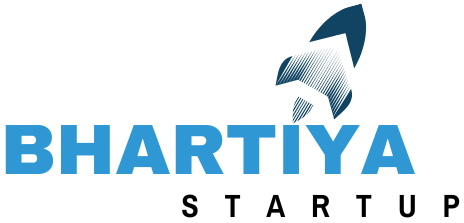Startup Incubators
Incubators as the term itself suggests that it is a place which helps to grow a premature babies in a controlled enviourement so as Startup Incubators help and support early-stage or idea-stage startups.
This organizations help new entrepreneurs to develop their business idea, build a prototype (first model), and validate their concept before seeking the large investments.
Purpose of Incubators
- It is to nurture the ideas of entrepreneurs and turn them into a final product.
- To provide guidance, mentorship and resources such as physical space, mentorship from industry experts, access to networks.
- Some of the incubators also provide seed funding, government funds, bank loans and venture debt
Who runs Incubators
- Mostly the startup incubators are run by universities, government bodies, or large companies.
- Some of the them are also non profit ie, they are run on publicly provided funds.
- The time period of startups mostly varies significantly from some months upto 5 years.
Best for whom to choose Incubators
- First time Founders who only have an idea in their mind or prototype.
- Those who need time, guidance, and validation before going to investors.
Examples
- T-Hub (India)
- NSRCEL (IIM Bangalore)
- Startup India Incubation Centres
Startup Accelerators
Accelerators as the term itself suggest it is used to accelerate (speed up) things so as Startup Accelerators they help and support startups which are ready for growth and have already have a product or early traction(momentum).
This organizations help a product or early traction startups to “accelerate” growth quickly through mentorship, networking, and funding.
Purpose of Accelerators
- To help startups scale fast, refine their business model, and prepare for fundraising.
Who runs Accelerators
- Mostly the startup accelerators are run by Venture Capital (VC) Firms , Corporates (Corporate Accelerators), or Independent Entrepreneur Networks
- Accelerators provide startups with capital, typically in exchange for 5–10% equity, along with mentorship, funding, and access to valuable resources
- Accelerator programs typically last between 3 and 9 months, offering a fast-paced and intensive growth experience for startups.
Best for whom to choose Accelerators
- Startups that already have MVPs, paying users, or clear business traction.
- Those ready to raise investment and scale operations quickly.
Key Differences
| Feature | Startup Incubator | Startup Accelerator |
|---|---|---|
| Stage | Idea/Prototype | Growth/Traction |
| Focus | Nurturing ideas | Rapid scaling |
| Funding | Usually none | Yes, equity-based |
| Duration | 6–24 months | 3–6 months |
| Outcome | Viable business model | Investment-ready company |
| Type | Long-term support | Short, intense program |
| Examples | T-Hub, NSRCEL | Y Combinator, Techstars |
FAQs
Q1. Which is better — incubator or accelerator?
A. It depends on your startup’s stage.
If you’re still developing your idea or prototype, an incubator is better.
If you already have a product and need to scale fast, go for an accelerator.
Q2. Do incubators or accelerators provide funding?
A.
a. Incubators usually do not provide direct funding; they focus on mentoring and infrastructure.
b. Accelerators, however, invest seed money in exchange for equity and help you connect with investors.
Q3. Do startups have to give equity to join?
A.
a. Incubators: Usually no equity required.
b. Accelerators: Commonly 5–10% equity in exchange for funding and mentorship.
Q4. How do startups get into an accelerator or incubator?
A. Startups must apply and go through a selection process. Accelerators are typically more competitive, while incubators often focus on local or university-linked founders.
Q5. What kind of mentorship do they provide?
A. Both provide access to experienced entrepreneurs, investors, and industry experts, but accelerators focus more on scaling and investor readiness, while incubators focus on idea validation and product development.
